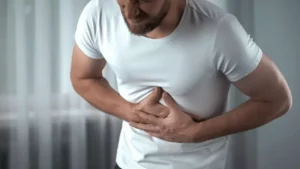
Attempting to quit all at once can lead to severe symptoms that can be difficult to manage safely outside of a detox setting. If you want to cut back your alcohol consumption or stop drinking alcohol altogether, tapering may help. Tapering is the process of gradually weaning off alcohol rather than quitting cold turkey.
Find more top doctors on
Cutting back or completely stopping alcohol consumption is challenging, even if you are not at the point of addiction. The support of medical professionals and psychologists can help you in this process. Deciding to reduce or eliminate how to taper off alcohol your alcohol consumption is a big step and will open up a whole new world of improved health and well-being. We are dedicated to transforming the despair of addiction into a purposeful life of confidence, self-respect and happiness.
How to safely taper off your alcohol consumption
- The Recovery Village Ridgefield medical detox center in Vancouver, WA, is a fully staffed rehab facility designed to help you wean off alcohol in comfort.
- Research shows that most people believe that drinking can make them feel better.
- Each of these challenges requires a unique approach and often the support of professionals, loved ones and support groups.
- Consuming more than that can lead to liver damage and heart disease, and increase your risk for some cancers.
Seizures can occur within the first 24 hours, but seizures occur only in about 25 percent of patients, according to the NIAAA. Remove all alcohol from your home or ask a friend or family member to do it for you. This includes beer, wine, and liquor, as well as products that contain alcohol such as rubbing alcohol and vanilla extract. Keep a list of emergency phone numbers on hand that includes contact info for your doctor, the police, a nearby hospital, and someone you trust. And consider joining a support group such as Alcoholics Anonymous. Stopping alcohol can be rewarding, but it’s not without challenges.

Challenges of Cutting Down on Alcohol Intake
If you have severe alcohol dependence or experience severe withdrawal symptoms, it’s essential to seek professional guidance. Medical professionals can provide appropriate interventions, including alcohol withdrawal medication or alcohol detox at home, to ensure your safety throughout the process. If you suddenly quit drinking, your body can struggle to catch up. Because alcohol is a central nervous system depressant, quitting drinking can cause your body to have too much of an excitatory substance called glutamate as it tries to rebalance.


This means that there is little data about the best way to taper your drinking. However, some groups have published tapering examples to assist those trying to quit drinking. This method is safer than abruptly stopping alcohol consumption, especially when switching from hard liquor to beer.

Recognize Dangerous Withdrawal Symptoms
Talk to a medical professional to find the best detox option for you. Dietary guidelines recommend that if you drink, men limit daily drinking to two drinks or less per day and women limit their drinking to one drink or less per day. Consuming more than that can lead to liver damage and heart disease, and increase your risk for some cancers. Substitution https://ecosoberhouse.com/ involves replacing alcoholic beverages with non-alcoholic ones. This can help address the habitual aspect of drinking, like having a beverage in hand at social events without the alcohol content. Over time, you can decrease the alcoholic drinks while increasing the non-alcoholic ones while still following the same behaviors you were used to.
- By avoiding alcohol, you’re taking a big step toward improving physical health.
- You may face social pressure, ingrained habits, and emotional reliance on alcohol.
- There’s no set time frame for tapering off alcohol that works for everyone.
- All of these withdrawal symptoms are common during acute alcohol withdrawal syndrome.
Connecting with Support
- Further, the severity of withdrawal symptoms can cause a person to resort back to drinking alcohol to relieve any symptoms.
- If you have a severe alcohol addiction, it might be best to seek professional addiction treatment.
- Maybe they don’t have peer support or maybe their alcohol addiction is too severe.
- Talk to a medical professional to find the best detox option for you.
A direct taper means you continue to drink your regular drinks but slowly decrease the amount over time. Direct tapers are better if you prefer drinks that contain a low percentage of alcohol. Tapering can be an excellent way to prevent harmful withdrawal effects after ceasing alcohol intake. If you have a severe level of addiction or dependency, you may need a detox program.
